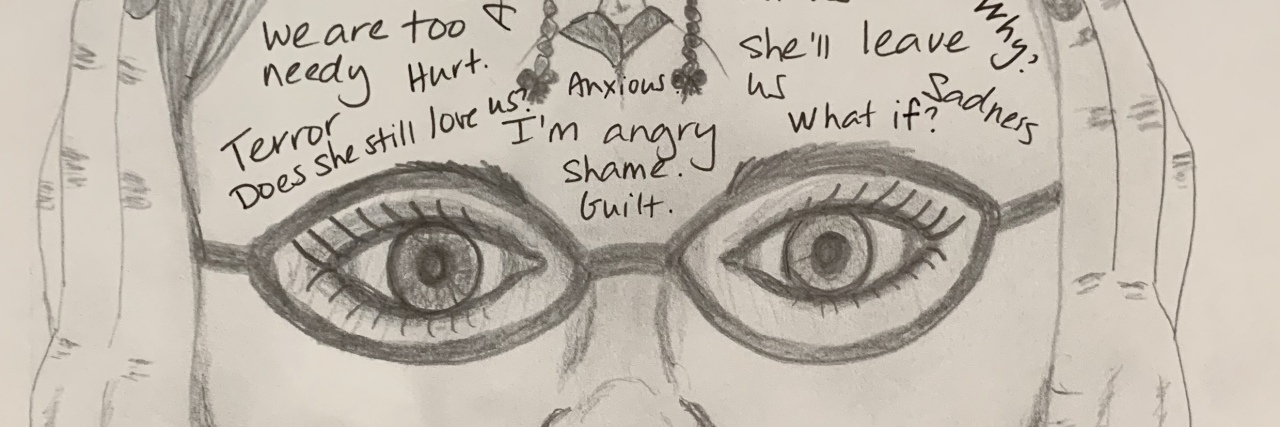When Complex PTSD Keeps You in a Constant State of Overthinking
Yesterday, after being told by my therapist I’m the worst overthinker she’s ever seen, I replied, “I saw this meme on Facebook that said if overthinking burned calories, I’d be dead by now.”
• What is PTSD?
I thought this was hilarious. She did not. Maybe because I’m fairly certain I’m the gold medal winner in the overthinking Olympics. And fact of the matter is, I can turn virtually anything good into something bad within moments, just by allowing my brain a few minutes to ruminate on it.
But why do I do this? It’s my understanding that those of us with complex post-traumatic stress disorder (C-PTSD) stemming from childhood abuse and neglect tend to have serious changes to the ways our brains develop. For us, the lower and emotional parts of our brains become hyperactive, while our logical brains become seemingly stunted or turned off. Essentially, we become trapped in a constant state of hypervigilance. Our fight-flight-freeze instinct stays on red alert and seeks out any possible danger that we may encounter, real or imagined.
This is not illogical if you think about a developing child. Children thrive when they have consistent and reliable caregivers who attend to and keep them not just physically safe but emotionally regulated. When caregiving consistency is absent through divorce, mental illness, addiction or other circumstances experienced by the parent, a child has no other option but to remain on high alert, ensuring that when the caregiver is capable of giving the child what it needs, they take advantage of it. When the caregiver is not capable, children must often learn how to take care of themselves.
In my case, my parents divorced when I was 3 years old and my mother was mentally ill. At her best, she could be funny, clever and amazingly creative. But at her worst, she could have panic attacks while driving, be absent completely or become self-harming. It was like walking on eggshells. I never knew which mom I was going to get from moment to moment.
I learned not to rely on anything or anyone, not to trust. Most importantly, I came to realize nothing and nobody is safe. It was much easier to assume something bad would happen and be pleasantly surprised when it didn’t than to repeatedly face disappointments.
This pattern persists to this day. I text someone and they don’t reply? They probably are mad at me. My husband seems irritable or grumpy? I obviously did something to upset him. I have a trip planned that I’ve been looking forward to? Something will probably happen, like my concert will cancel or my plane will crash before I arrive.
I lie awake night after night replaying conversations, interactions, facial expressions, everything I’ve taken in throughout the day and I analyze them. What did that sigh mean? Why did they say the word “frustrated” instead of “angry?” Why did that person not say “I love you” back? What did I do wrong? Am I bad? Am I in trouble? Am I going to be abandoned?
These thoughts clearly come from a very regressed part of myself. While my logical adult self understands I’m being irrational, I simply cannot get off the train of thought once I’m on it. It’s a high-speed train and it’s already in another country before I realize I’ve completely become lost.
I wish I knew how to stop it. I’ve tried yoga, art, writing, music, listening to recordings from my therapists, reading about C-PTSD to understand the pathology. Nothing seems to have helped yet. Maybe this is the last part of healing. Maybe it’s the hardest habit to break because in truth, I relied on it to survive as a child. But this coping mechanism has long outlived its usefulness, and I hope one day I can silence my brain and just allow myself to be.

